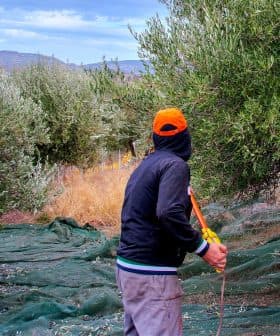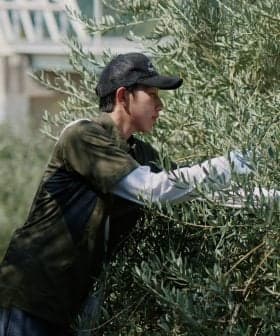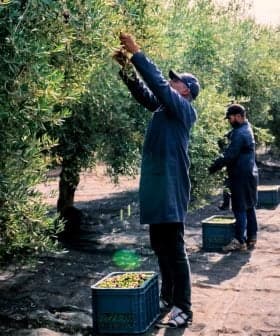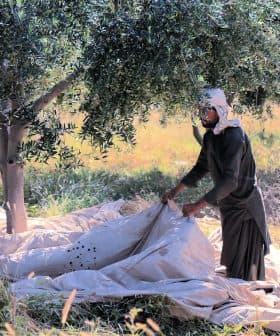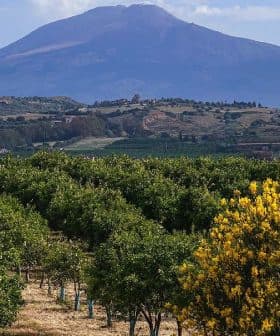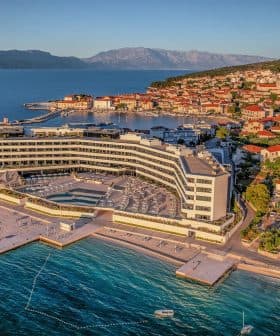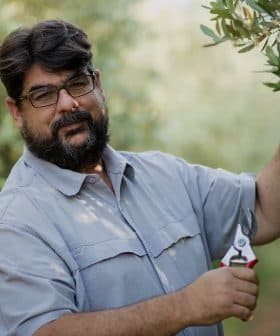Festivals and Conferences Build Momentum for Pakistani Olive Oil Sector

The inaugural Olive Gala Festival in Pakistan was deemed a success, with 185 hectares of new olive groves planted since the event in Khyber Pakhtunkhwa. The event highlighted the country’s progress in developing the olive farming sector, with plans to promote olive cultivation and commercial olive oil production to mitigate economic challenges and potentially generate income through exports. The festival not only raised awareness about the benefits of olive cultivation but also facilitated networking opportunities for farmers, researchers, policymakers, and industry experts to further develop the sector.
Organizers of Pakistan’s inaugural Olive Gala Festival, held in March, have hailed the event as a success.
Abdul Bari, the director general of the Agricultural Research Institute, Tarnab, told Olive Oil Times that in the six months since the event was held, 185 hectares of new olive groves have been planted in Khyber Pakhtunkhwa.
The successful Olive Gala Festival improved the public’s perception of the olive sector. It highlighted the sector’s contributions to the economy, environment, and local communities, leading to increased interest and support.
Olive cultivation is viewed as a strategic crop for economic and security development in Khyber Pakhtunkhwa, a northwestern province with a border with Afghanistan.
Thousands of olive trees have been planted in the province since 2018, but 2,500 were damaged during last year’s ferocious monsoon season.
See Also:Italy to Provide €1.5M to Develop Pakistani Olive Oil SectorAccording to Bari, more than 800 people attended the event in Tarnab, about 100 kilometers west of Islamabad, including farmers, food processors, members of academia, government representatives and the general public.
In the six months since the gala was held, Bari said there was a noticeable increase in interest surrounding olive oil from the general public and increased investments made by olive farmers in new harvesting and pruning equipment.
“Among the general public, it created awareness about the benefits of olive oil use and various value-added products,” he said. “Farmers are taking an interest in including olives in their value-added products.”
Hosted by the Agricultural Research Institute, Tarnab, the event was the first of its kind in Pakistan. It highlighted the country’s progress in developing its olive farming sector and prospects.
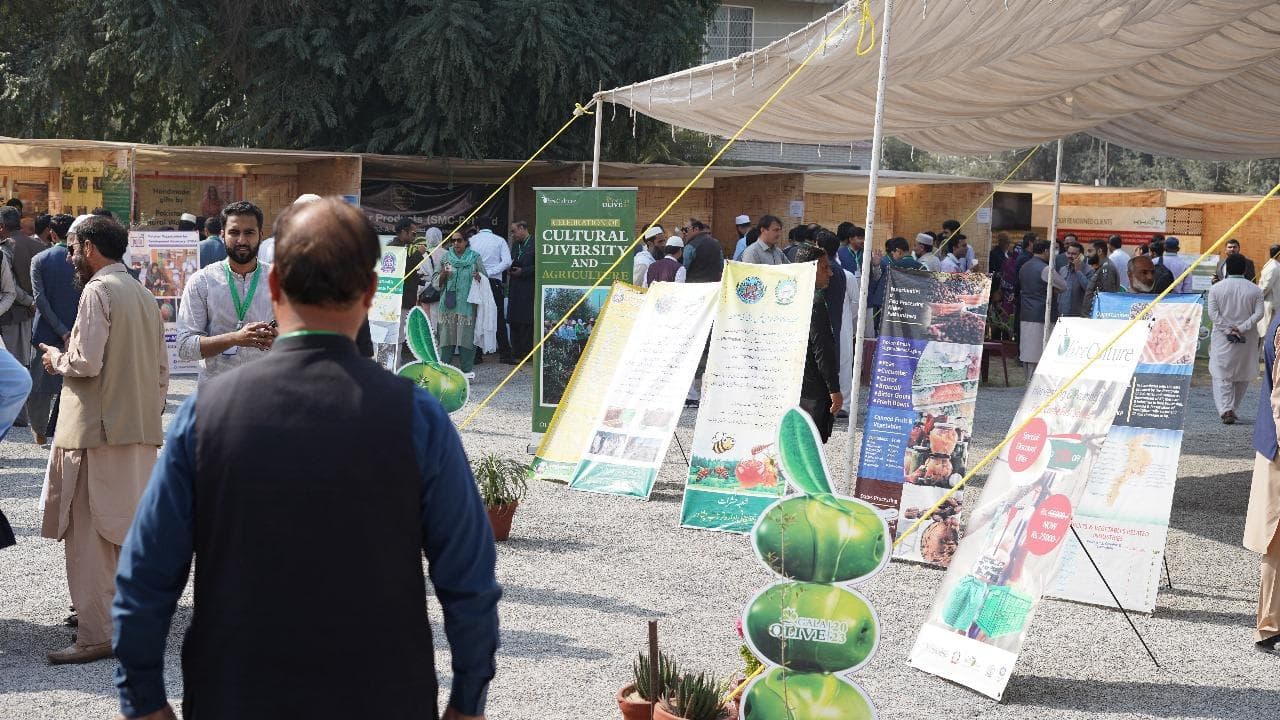
Developing the olive oil sector is seen as a way to foster stability to the Pakistani border province.
The institute has played a pivotal role in the progress of the olive sector and is responsible for executing a project to promote olive cultivation and develop commercial olive oil production in Pakistan, which Bari said can help the country mitigate the severe economic crisis it currently faces.
“In 2021, Pakistan imported $8.07 million (€6.83 million) of pure olive oil, becoming the 64th largest importer in the world,” he said. “If this area (Khyber Pakhtunkhwa) is brought under olive cultivation, it will not only fulfill the domestic requirement of olive oil but will also generate income through the export of olive oil.”
“In addition, millions of wild olives are growing in Khyber Pakhtunkhwa and newly merged districts, which can be successfully converted into oil-bearing species through budding and grafting,” he added.
Pakistan has immense olive cultivation potential due to its diverse climate and fertile valleys. Bari said the gala was a stride forward in harnessing the untapped potential of the olive sector.
“The events like the Olive Gala Festival raise awareness about the olive sector’s potential, highlighting the steps already taken towards its development among the community,” Bari said, noting that interest in the event had resulted in two follow-ups held in June focused on olive farming best practices.
“It can educate farmers about the benefits of olive cultivation, processing and consumption, as well as the progress made in research, technology and best practices,” he said.
“This type of event can showcase the achievements and success stories within the olive sector,” Bari added. “This can include sharing data on increased olive cultivation, improved yields, better quality olive oil production, and enhanced livelihoods for farmers involved in olive cultivation and value chain.”
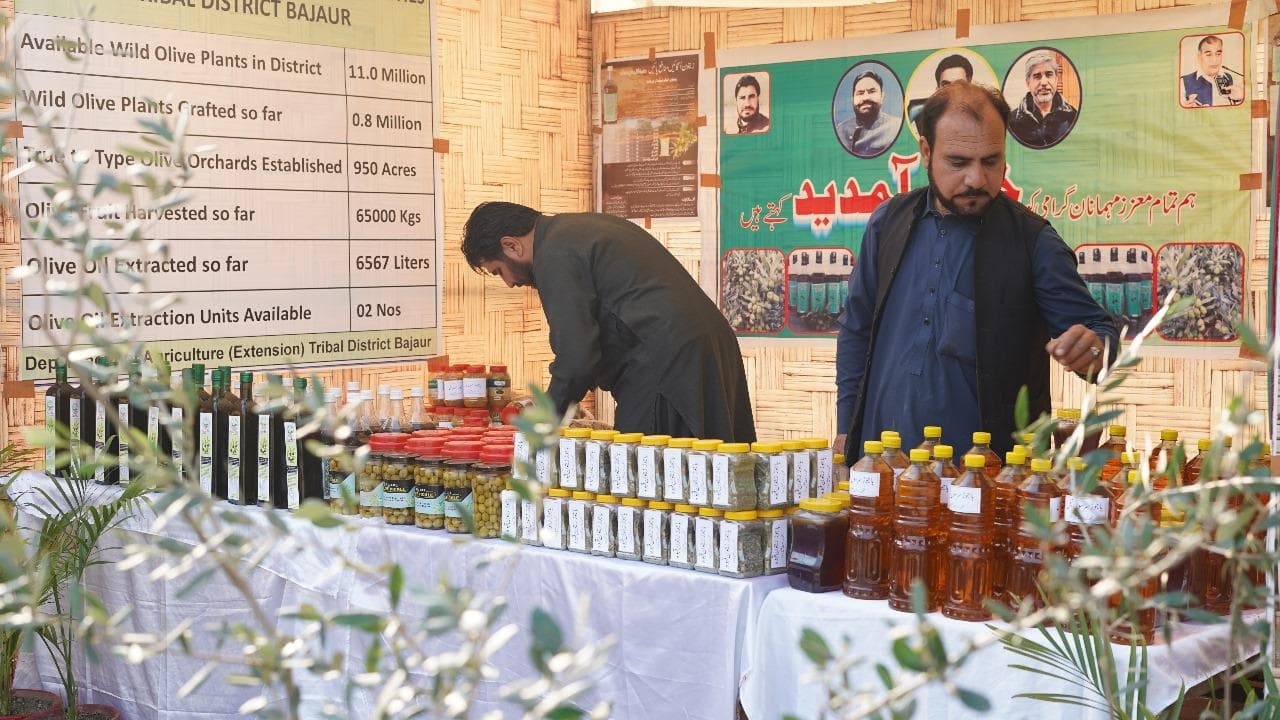
The Olive Gala Festival gave growers the opportunity to make deals with millers and food processors.
While noting that no large-scale partnerships have been reached since the event was held, Bari said the gala succeeded as a networking event with numerous reports of small farmers connecting with millers for the upcoming harvest and potential buyers for table olives.
The event also allowed olive farmers to meet researchers from local and other national universities, policymakers, investors and industry experts.
“This engagement can lead to discussions on strategies for further developing the sector, addressing challenges, and identifying opportunities,” Bari said.
“Positive connections were made between olive growers, processors and potential buyers, both domestically and internationally, through this event, which will help open up new markets for Pakistani olive products, encouraging commercial-scale cultivation,” he added.
While the gala brought together many stakeholders from within the sector, its influence extended far beyond the confines of the festival grounds. The event resonated through the media, captivating the attention of local, national and even international news outlets.
Bari said the extensive coverage helped reach a broader audience, and the festival’s objectives, achievements and potential were brought to the forefront of public awareness.
“The successful Olive Gala Festival improved the public’s perception of the olive sector,” he said. “It highlighted the sector’s contributions to the economy, environment, and local communities, leading to increased interest and support.”
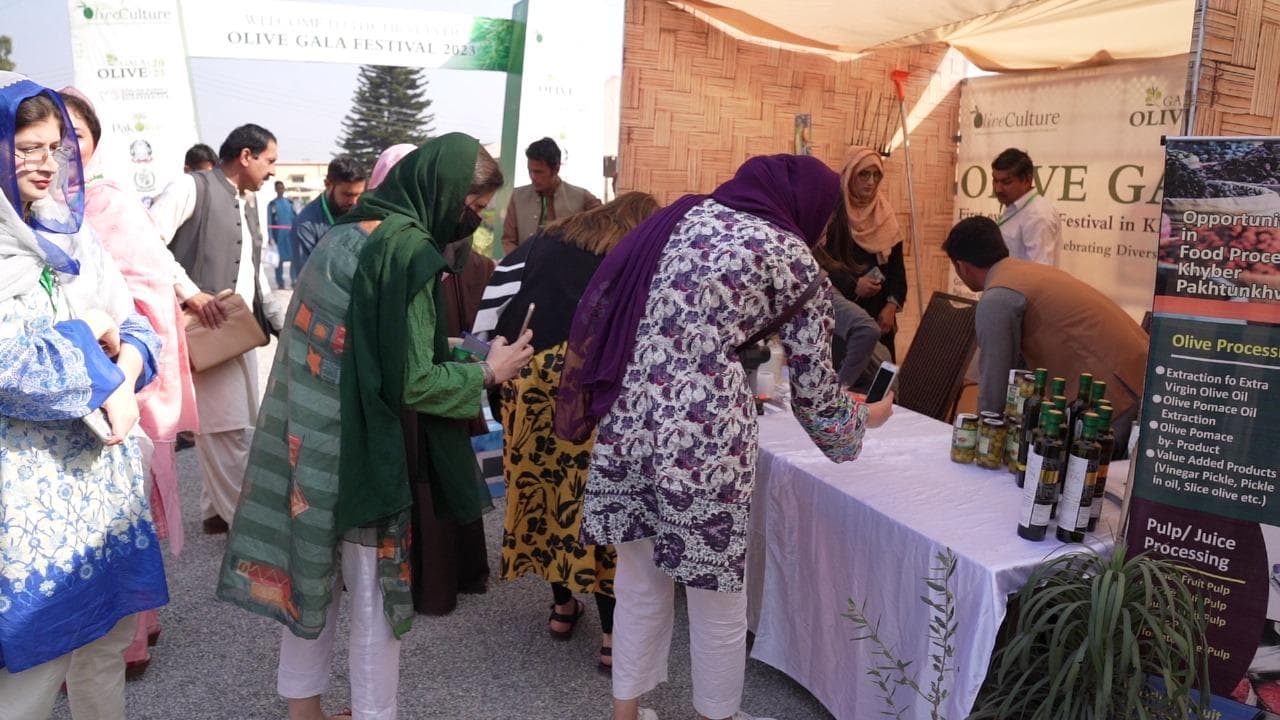
Bari said the events have generated lasting interest in olive oil from the general public.
“Festivals and other events can attract media coverage, leading to increased media attention on the olive sector’s development,” he added. “Positive media coverage can create a ripple effect by reaching a broader audience.”
Bari said interest from the gala had spilled over into a two-day olive cultivation project held in June at Hazara University Mansehra in Khyber Pakhtunkhwa.
He and local farmers are looking forward to a series of September events in the province across Pakistan’s other olive-growing regions with an eye on the upcoming harvest.
“Agriculture Research Khyber Pakhtunkhwa is committed to developing the olive sector in the province,” Bari said. “Our directorate is providing technical support to the farmers to enhance production of olive plantation and production in the province.”
“In future pieces of training, field days, and other such events will be arranged for the promotion of olive and its value-added products and to educate farmers about the benefits of olive cultivation, processing and consumption as well as the progress made in terms of research, technology and best practices,” he added.
“An ideal business opportunity exists for small farmers, including women, to invest in the preparation and marketing of olive value-added products, including olive pickles, biscuits, cakes and tea,” he concluded.


